Intel bulletin warns of 'malign actors' targeting US over George Floyd fallout
Russia, China, and Iran have "criticized the United States as hypocritical."
As protesters hit the streets in cities across the country, America's foreign adversaries have flooded social media with content meant to sow division and discord in the wake of George Floyd's death, according to a U.S. government intelligence bulletin obtained by ABC News.
The bulletin, distributed Tuesday to law enforcement by the Department of Homeland Security (DHS), accuses Russia, China and Iran of "employing state media, proxy outlets, and social media accounts to amplify criticism of the United States related to the death of George Floyd and subsequent events."
These "malign actors" also appear intent on drawing attention to alleged hypocrisy in the Trump administration's handling of protesters, the report found.
The death of 46-year-old George Floyd last month, at the hands of a former Minneapolis police officer, has sparked outrage and protest from coast to coast, prompting calls for an overhaul of police practices.
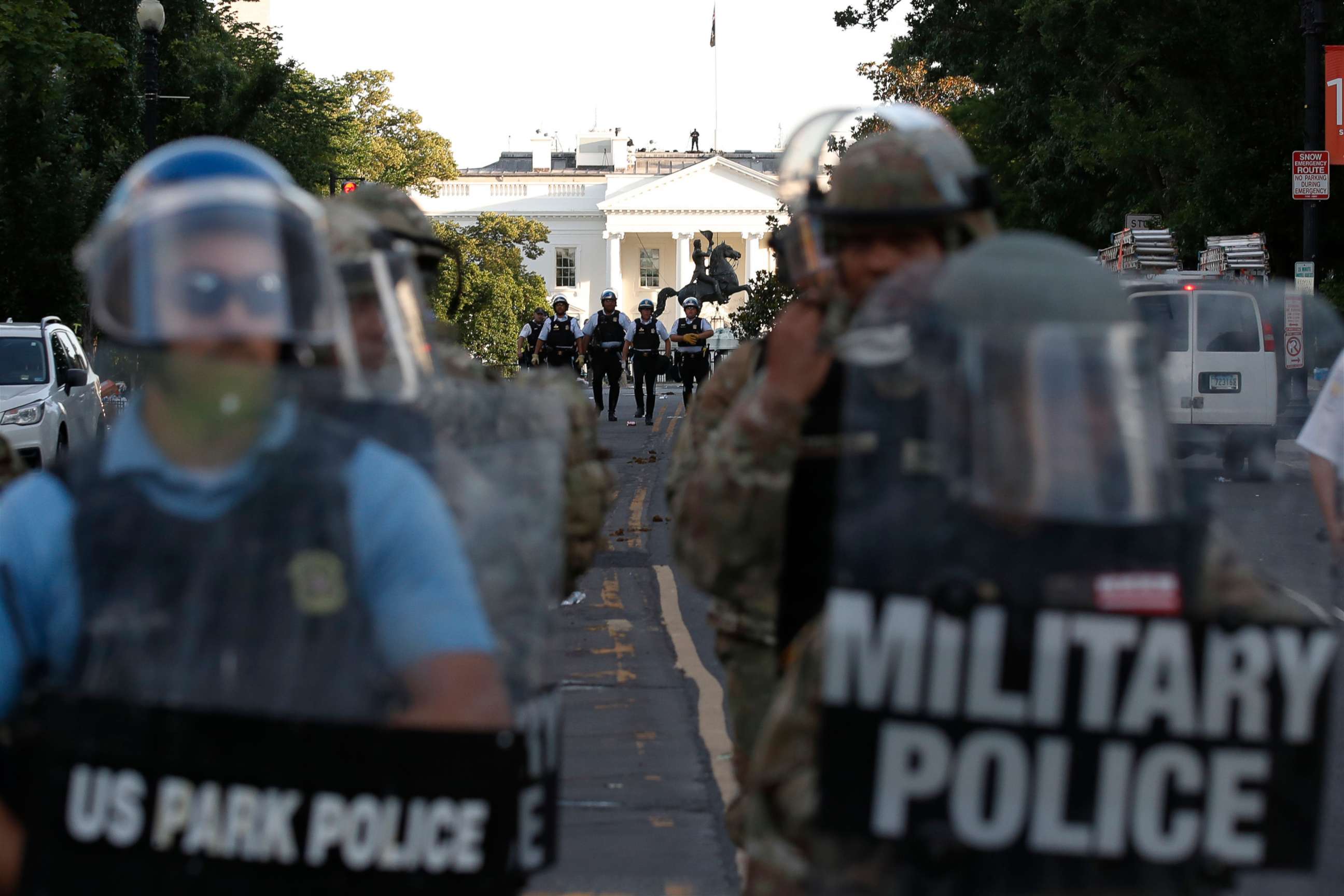
In the intervening weeks, foreign adversaries have sought to leverage the residual domestic strife resulting from Floyd's death to pursue geopolitical goals, the bulletin claimed, including an ongoing effort to weaken Washington's image on the international stage.
"These actors criticize the United States as hypocritical, corrupt, undemocratic, racist, guilty of human rights abuses and on the verge of collapsing," the report found.
For Russia, this finding represents the latest chapter in Moscow's age-old information warfare playbook, according to John Cohen, a former senior DHS official and current ABC News contributor.
"This is yet another indicator that Russia is using the combination of overt propaganda and covertly disseminated disinformation to sow discord across our populace, expand the cracks in our society, and undermine the credibility of the U.S. government," Cohen said.
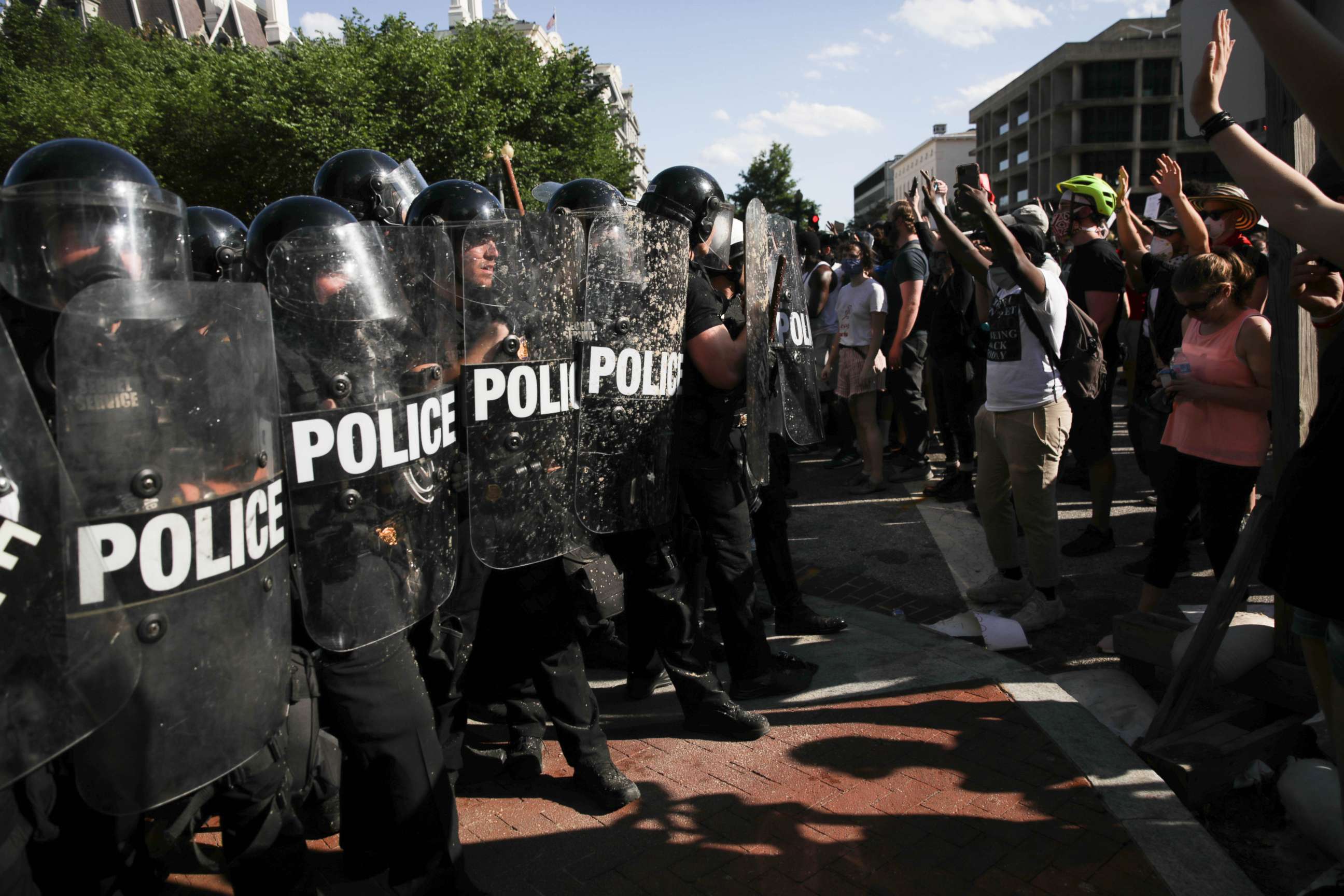
During the 2016 election, Russian proxies conducted "a social media campaign designed to provoke and amplify political and social discord in the United States," according to former special counsel Robert Mueller in his March 2019 report on Russian meddling.
Since then, Russian actors have honed in on race-related incidents in America. In October of 2018, for example, the Justice Department charged a Russian woman for her alleged role in a plot to influence public opinion ahead of the 2018 midterm elections to "aggravate the conflict between minorities and the rest of the population."
Prosecutors said the woman and her Russian partners "took advantage of specific events in the United States to anchor their themes," including the NFL kneeling controversy, the 2017 "Unite the Right" rally in Charlottesville, Virginia, and the 2015 racially-motivated shooting at a Charleston, South Carolina, church.
After the Charlottesville rally, a Republican member of Congress told CNN that the FBI had evidence that Russians had used the event to enflame racial tensions on social media.
The intelligence bulletin also cited Russian state-run media outlets Ruptly, RT France and Going Underground on RT as applauding Americans for being "justified in rioting against the 'corrupt American capitalist system.'"
"Russian state-media-affiliated social media accounts shared imagery of police responses to the protests, the use of tear gas by the National Guard and called the protests a 'revolt' that 'has reached the front door of the US empire,'" the bulletin continued.
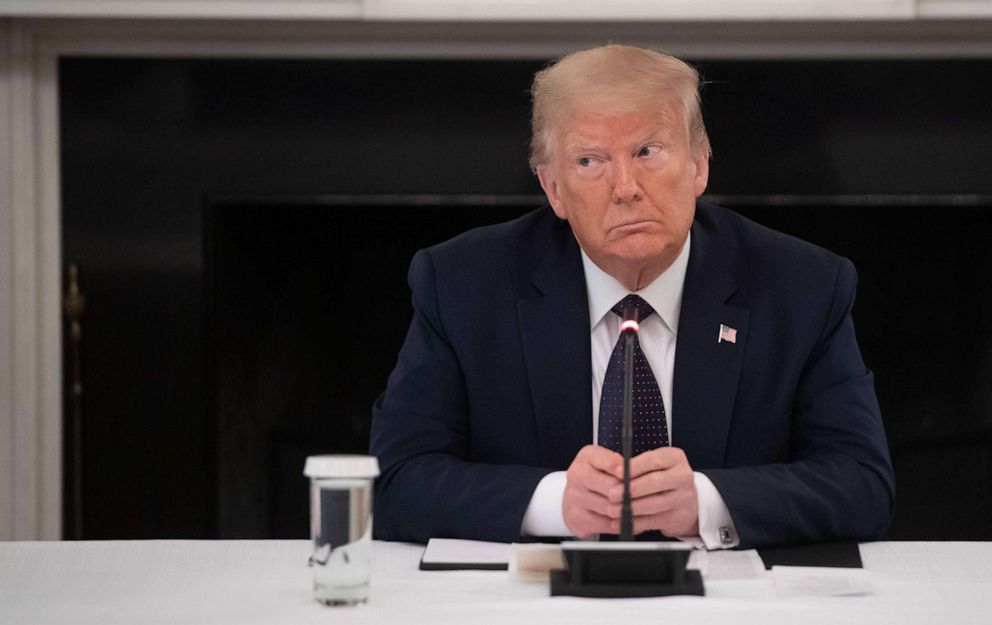
The U.S. intelligence community has previously designated multiple state-run media outlets as "international propaganda outlets," according to a January 2017 report gathered by the Office of the Director of National Intelligence.
Likewise, in Tehran, state-run media outlets were found to promote claims that U.S. officials acted "[hypocritically] in its treatment of its citizens" and were "guilty of human rights violations," the bulletin suggested.
"As the protests developed, Iranian state narratives shifted focus to the US Government's allegedly undemocratic and corrupt treatment of the press," the bulletin continued. "Iranian Government officials … called for an international investigation of, and trial of US leaders for, human rights violations."
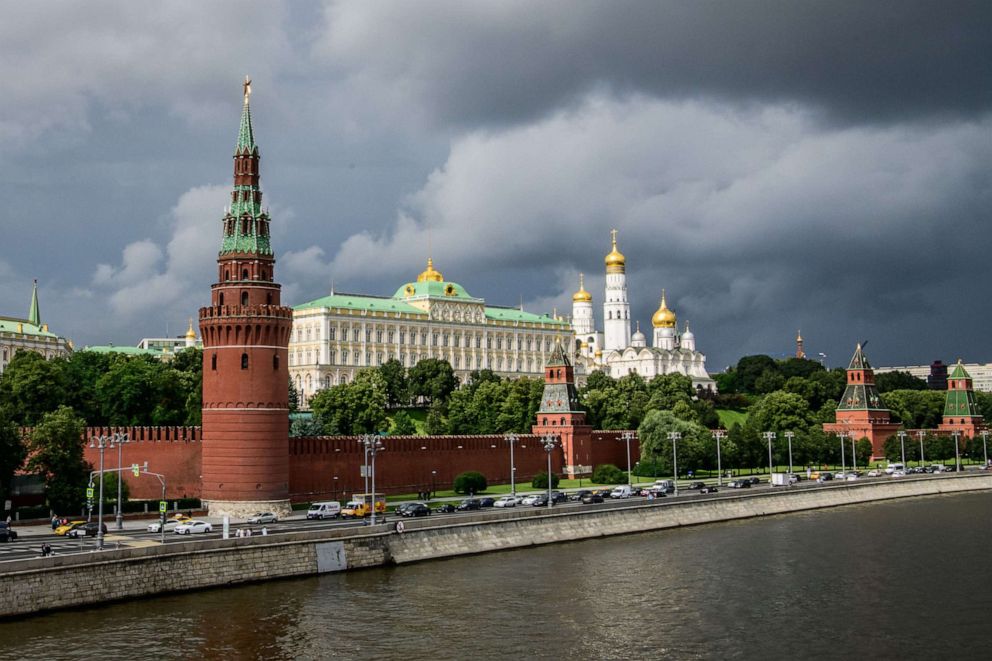
Chinese state-run media outlets and officials echoed those sentiments, calling "the US Government response to protests is hypocritical when compared with its statements regarding China's handling of protests in Hong Kong."
The U.S. has, in recent years, criticized leaders in both Tehran and Beijing for their handling of civil demonstrations. In January, President Donald Trump tweeted support for the "wonderful Iranian protesters." In November, he infuriated Chinese leaders by signing two bills in support of pro-democracy protesters in Hong Kong.
Critics fear the Trump administration's combative posture toward protesters at home, however, could undermine its credibility and leadership on the world stage.
"In recent history, America's leaders have tried to send a unifying message both at home and also to the world, but President Trump has abandoned any normative restraints, calling up the military, using tear gas and rubber bullets to disperse peaceful protesters, and tweeting inflammatory messages that stoke division and inflame the situation," said Dr. Leslie Vinjamuri, the leader of the U.S. & Americas program at Chatham House, a think tank based in London.
"The riots have also unfolded after nearly four years of a president that has chipped away, but with a sledgehammer, at America's moral authority," she added.
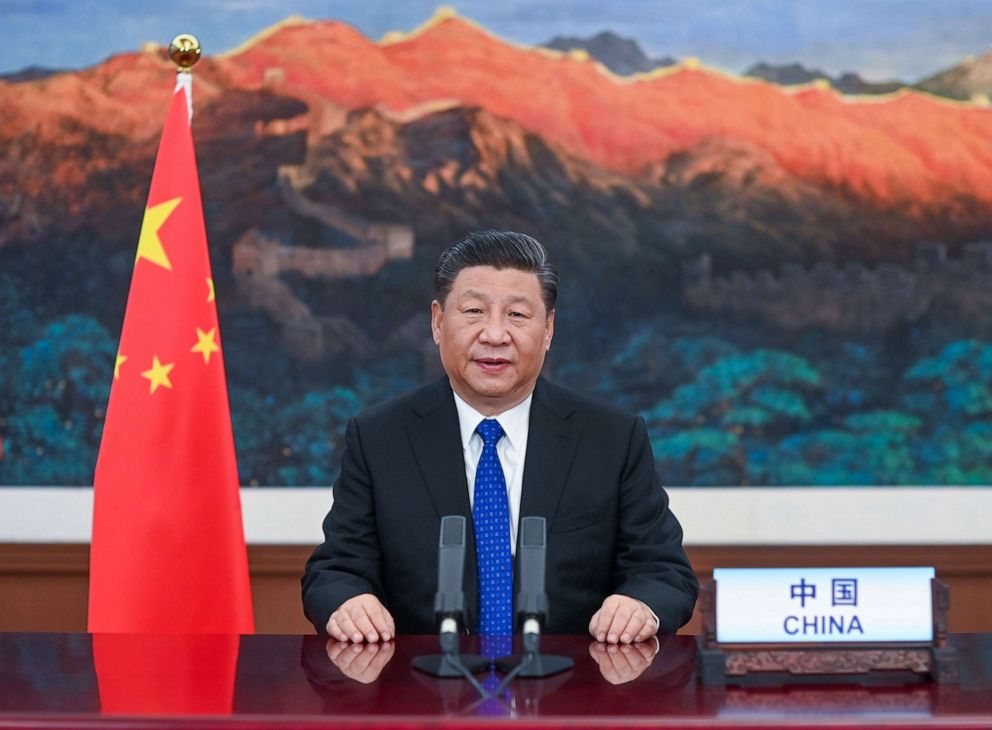
Confronted by a reporter on that alleged hypocrisy, Secretary of State Mike Pompeo called the question "troubling," and accused the reporter of drawing an improper "moral equivalency" to the nature of protests in the U.S. and those abroad.
"They repress their people, and they bludgeon their people, and they burn down their religious facilities and they deny journalists -- you all -- a chance to ask a question of a secretary of state," Pompeo said, specifically citing the Chinese response to protests in Hong Kong.
And it is not just American racial tensions the "malign actors" have allegedly sought to use against the U.S.
A similar DHS bulletin distributed last month accused Russian and China of "conducting COVID-19 pandemic-related malign influence and disinformation campaigns targeting U.S. and global audiences to deflect criticism of China's initial response, raising doubts about the Chinese origins of the virus and mischaracterizing Chinese and Western responses as the virus spreads globally."
ABC News' Guy Davies and Conor Finnegan contributed reporting.